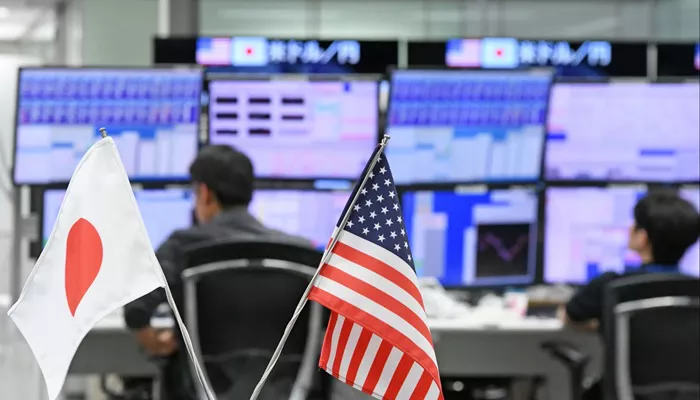In their first face-to-face meeting, U.S. Treasury Secretary Scott Bessent did not pressure Japan’s Finance Minister Katsunobu Kato to support the yen amid discussions about trade tariffs. The two sides met as part of ongoing negotiations focused on President Donald Trump’s new tariffs aimed at reducing trade deficits and protecting U.S. industries.
Key Meeting Highlights
Following their meeting in Washington, Kato confirmed that both countries reaffirmed the long-standing Group of Seven (G7) agreement that exchange rates should be determined by market forces. He emphasized that excessive currency volatility could harm global economic stability. Kato added that while currency matters were discussed, Bessent made no mention of targeting specific exchange rates or establishing frameworks to control currency fluctuations.
The 50-minute meeting took place shortly after Japan and the U.S. officially launched tariff negotiations. These talks were prompted by Trump’s decision to impose higher tariffs on Japanese imports to address what he calls unfair trade practices by other countries.
Japanese Officials’ Stance on Tariffs
During the meeting, Kato expressed his regret over the new U.S. tariffs, describing them as “extremely regrettable.” He also urged the U.S. to reconsider the increased protectionist measures, which, according to the International Monetary Fund (IMF), could significantly slow down global economic growth.
Kato’s comments came in the context of broader trade talks where the Trump administration has raised concerns about what they perceive as non-tariff barriers in Japan. Additionally, U.S. officials have accused Japan of intentionally devaluing the yen to gain an advantage for its manufacturers, particularly the automobile sector.
Japanese officials have denied these claims, arguing that exchange rates should remain stable and reflect economic fundamentals. Japan has also intervened in the currency markets in recent years, purchasing yen to prevent excessive speculative movements.
Ongoing Tariff Issues and Future Negotiations
The 24 percent tariffs on goods imported from Japan, part of Trump’s broader tariff strategy, are currently suspended for 90 days. This reprieve allows for further negotiations, with the exception of China. However, Japan still faces additional duties on car imports and other sectors, as well as a universal 10 percent tariff.
The Kato-Bessent meeting occurred on the sidelines of the semiannual meetings of the IMF and World Bank Group. It followed Japan’s chief negotiator, Ryosei Akazawa, visiting Washington earlier in April to engage with U.S. officials, including President Trump. Akazawa will return to the U.S. next week to continue talks, with hopes of eliminating the tariffs on automobiles—a key industry for Japan.
Japan’s Position on Separate Negotiations
Prime Minister Shigeru Ishiba emphasized that Japan prefers to discuss trade and security matters separately. In a recent parliamentary session, he stated that Japan values substance over speed in these negotiations.
The upcoming talks are seen as crucial, as Japan looks to secure a favorable outcome for its export-driven economy while navigating the complex dynamics of U.S. protectionism.
Related Topics:

